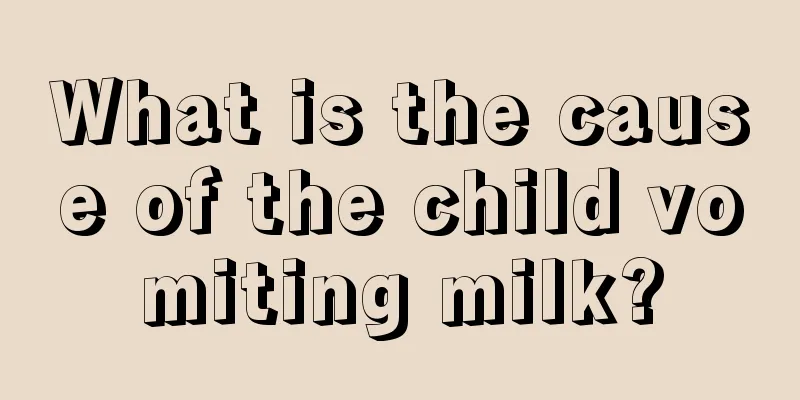How to quickly solve the problem of bloating in children?

|
Everyone knows that the baby's digestive system is not yet fully developed, and the peristalsis of the intestines is easily affected. There are also many reasons that cause children's bloating. If a child has bloating, parents must find out the cause in time and help the baby relieve the bloating as soon as possible, otherwise it will cause serious impact on the baby's health. How to quickly solve children's bloating? 7 ways to deal with bloating in children Measure 1: Don’t let your baby be hungry for too long before feeding. If your baby is hungry for too long, he will suck too quickly and swallow a lot of air. Therefore, you should feed your baby on time, and after feeding, gently pat your baby's back to promote burping and allow gastrointestinal gas to be discharged from the esophagus. Measure 2: When the baby cries, it is easy to get bloating. In this case, parents should give more comfort or hug him to avoid worsening of bloating by adjusting his emotions. Measure 3: Massage your baby's abdomen more often, in a clockwise direction for 5 minutes. Or using wind-repellent oil on the abdomen or covering it with a warm towel can also help. These help gastrointestinal motility and gas discharge to improve digestion and absorption function. Measure 4: If breast milk contains too much sugar, the sugar will ferment excessively in the baby's stomach and can easily cause the baby to have intestinal gas. At this time, the mother should pay attention to limiting her sugar intake. In addition, if you suspect that your eating may cause your baby's bloating, then breastfeeding mothers should eliminate suspicious foods such as beans, corn, sweet potatoes, cauliflower and spicy foods from their diet. Measure 5: For babies who are bottle-fed, care should be taken to ensure that the milk fills the front end of the bottle nozzle and that there is no slope to prevent the baby from inhaling air. For a breastfed baby, if the baby's mouth is not placed properly relative to the mother's breast while feeding, the baby may inhale too much air, resulting in burping or abdominal bloating. The correct posture is to have the baby's face facing the mother's breast to ensure that his mouth covers the nipple and areola. Measure 6: Certain solid foods may also cause belching and bloating. For example, whole grains and some vegetables such as pea paste and soybean paste contain fiber that can cause intestinal bloating. Kiwi, pear, pineapple, fruit juice, etc. contain high concentrations of sugar, which can also cause abdominal bloating in infants and should be eaten less. Measure 7: If your baby has abdominal distension and vomiting, loss of appetite, weight loss, difficulty passing gas through the anus, or even fever, bloody stools, or tenderness in the abdomen, or shortness of breath, or something like a lump can be felt in the abdomen, you should pay special attention and take your baby to the doctor for examination and treatment as soon as possible. |
<<: Why do girls develop lumps in their breasts?
>>: What does early childhood education knowledge include?
Recommend
What can children eat to make their skin whiter?
Skin problems not only affect adults, but also ch...
What are the first aid knowledge for primary school students?
In daily life, with the current traffic congestio...
Do you know at what age children start to have big teeth?
It is a normal phenomenon for children to change ...
What medicine is good for whooping cough in children?
Coughing is a normal reaction of our body, but fr...
What should I do if my child takes antipyretics without a fever?
Under normal circumstances, you should choose sta...
What are the symptoms of a frightened baby?
Some babies show symptoms of fright, which seriou...
Can children eat watermelon when they have a cough?
Children’s physical health has always been a matt...
How to correct a child who eats slowly?
Parents are very concerned about their children&#...
Is it normal for newborns not to cry?
One of the most troublesome problems for parents ...
Is it normal for a newborn to breathe through the mouth?
Under normal circumstances, people breathe throug...
What to eat for infants and young children with zinc deficiency
During the development of a child, a very young c...
Is it good for children to drink milk on an empty stomach in the morning?
We all have the habit of drinking milk. We all kn...
How to prepare baby milk powder
Infant formula powder is a very common drink. Man...
Why is the baby hairless?
If a baby is born in the family, the family will ...
What causes epilepsy in children?
Epilepsy is a very common disease that frequently...









